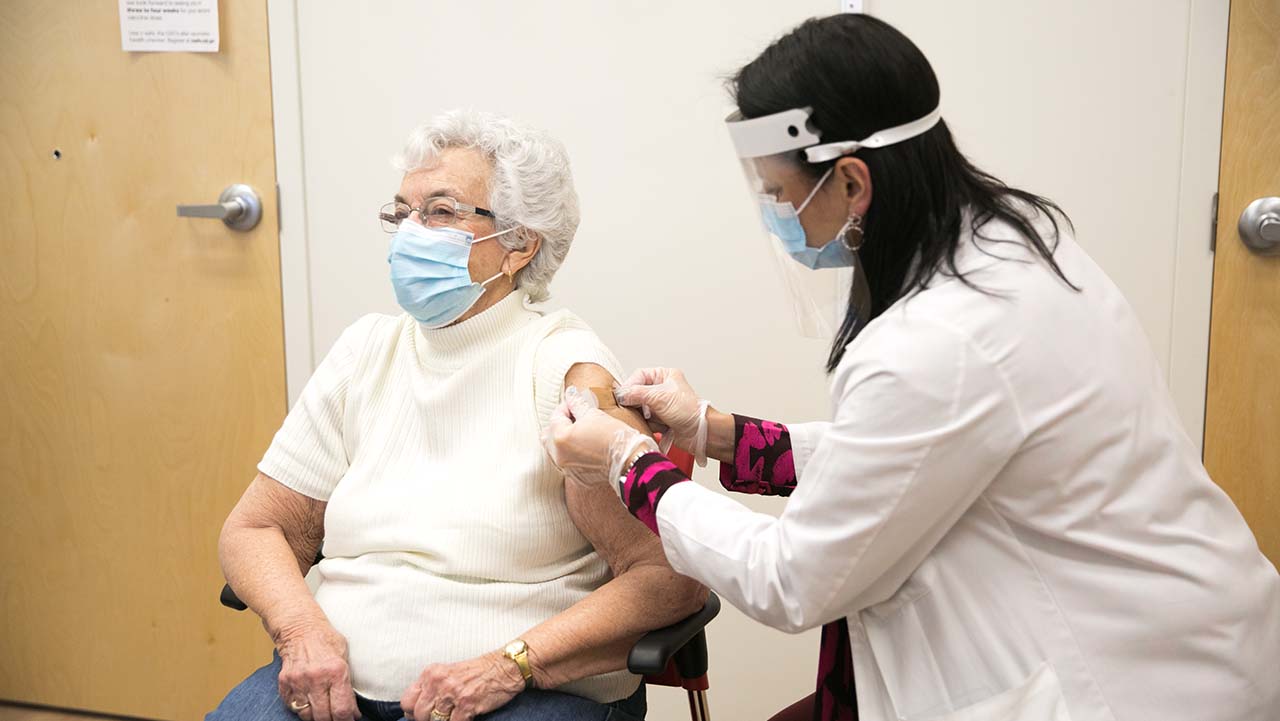Safe Patient Care Act Aims to Protect Registered Nurses Against Being Overworked
The proposed legislation, which addresses nurse-to-patient ratios and forced overtime, was introduced in March in the Michigan Legislature with bipartisan support.

In March, the Safe Patient Care Act was introduced in the state Legislature. The proposed legislation would limit forced overtime for registered nurses, set minimum nurse-to-patient ratios and protect nurses who speak out against health care systems.
Christopher Friese, a professor at the University of Michigan School of Nursing and School of Public Health, says nurses were already in a vulnerable state before the pandemic, becoming increasingly dissatisfied with their jobs and dealing with burnout.
“Nurses were in trouble before this, then you lay on top of it the unbelievable workload that nurses have borne over the last year … it’s easy to see why there is an increased push to protect nurses right now,” he says. “If we do not come up with a strategy that protects nurses, they are not going to be at the bedside to care for our loved ones.”
“If we do not come up with a strategy that protects nurses, they are not going to be at the bedside to care for our loved ones.” –Christopher Friese, University of Michigan School of Nursing and School of Public Health
Friese says the guardrails that are in this bill are evidence-based and would reduce the number of errors committed by overworked nurses. Citing research published over the past two decades in multiple states, he says the studies “show that when nurses care for a certain number of patients, [and] they go over that number, they’re more likely to commit errors, more likely to have unsafe events. Patients are more likely to die.”
Critics say this type of legislation makes it harder for hospital executives, in Michigan and in other states, to have flexibility during unusual and difficult situations.
“We do have some evidence from interviews, mostly in California, that some executives had issues with the way the legislation was enacted,” Friese says. “It felt too difficult to implement when things were very difficult in a hospital. It was harder to be able to respond quickly.”
While those concerns could be addressed with some flexibility in either this legislation or other proposals, Friese says “what we’re really talking about here is that minimum floor where we know that nurses practice in the safest manner.”
Many versions of this kind of legislation have been introduced in the past in different states in different regions but he says the time is right to pass this bill. “If there were ever a period where Michiganders appreciated what nurses do on a daily basis, it’s this year, and I think most of us would agree that it’s time to give nurses their due and give them the basic safe environment they need to practice good care and take care of our loved ones.”
Listen: How the Safe Patient Care Act aims to protect nurses.
Trusted, accurate, up-to-date.
WDET strives to make our journalism accessible to everyone. As a public media institution, we maintain our journalistic integrity through independent support from readers like you. If you value WDET as your source of news, music and conversation, please make a gift today.

